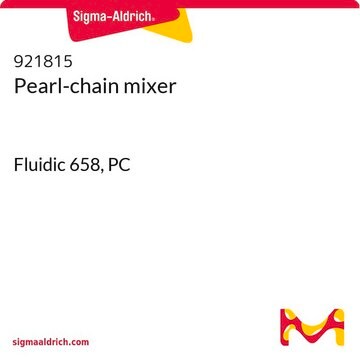MABN807
Anti-EYS Antibody, clone 3G10.1
clone 3G10.1, from mouse
Synonim(y):
Protein eyes shut homolog, EGF-like protein 10, EGF-like protein 11, Epidermal growth factor-like protein 10, Epidermal growth factor-like protein 11, Protein spacemaker homolog
About This Item
Polecane produkty
pochodzenie biologiczne
mouse
Poziom jakości
forma przeciwciała
purified immunoglobulin
rodzaj przeciwciała
primary antibodies
klon
3G10.1, monoclonal
reaktywność gatunkowa
human, rat
metody
immunohistochemistry: suitable (paraffin)
western blot: suitable
izotyp
IgG2bκ
numer dostępu NCBI
numer dostępu UniProt
Warunki transportu
wet ice
docelowa modyfikacja potranslacyjna
unmodified
informacje o genach
human ... EYS(346007)
Opis ogólny
Specyficzność
Immunogen
Zastosowanie
Neuroscience
Sensory & PNS
Jakość
Western Blotting Analysis: 1.0 µg/mL of this antibody detected EYS recombinant protein.
Opis wartości docelowych
Postać fizyczna
Przechowywanie i stabilność
Inne uwagi
Oświadczenie o zrzeczeniu się odpowiedzialności
Nie możesz znaleźć właściwego produktu?
Wypróbuj nasz Narzędzie selektora produktów.
Kod klasy składowania
12 - Non Combustible Liquids
Klasa zagrożenia wodnego (WGK)
WGK 1
Temperatura zapłonu (°F)
Not applicable
Temperatura zapłonu (°C)
Not applicable
Certyfikaty analizy (CoA)
Poszukaj Certyfikaty analizy (CoA), wpisując numer partii/serii produktów. Numery serii i partii można znaleźć na etykiecie produktu po słowach „seria” lub „partia”.
Masz już ten produkt?
Dokumenty związane z niedawno zakupionymi produktami zostały zamieszczone w Bibliotece dokumentów.
Nasz zespół naukowców ma doświadczenie we wszystkich obszarach badań, w tym w naukach przyrodniczych, materiałoznawstwie, syntezie chemicznej, chromatografii, analityce i wielu innych dziedzinach.
Skontaktuj się z zespołem ds. pomocy technicznej








